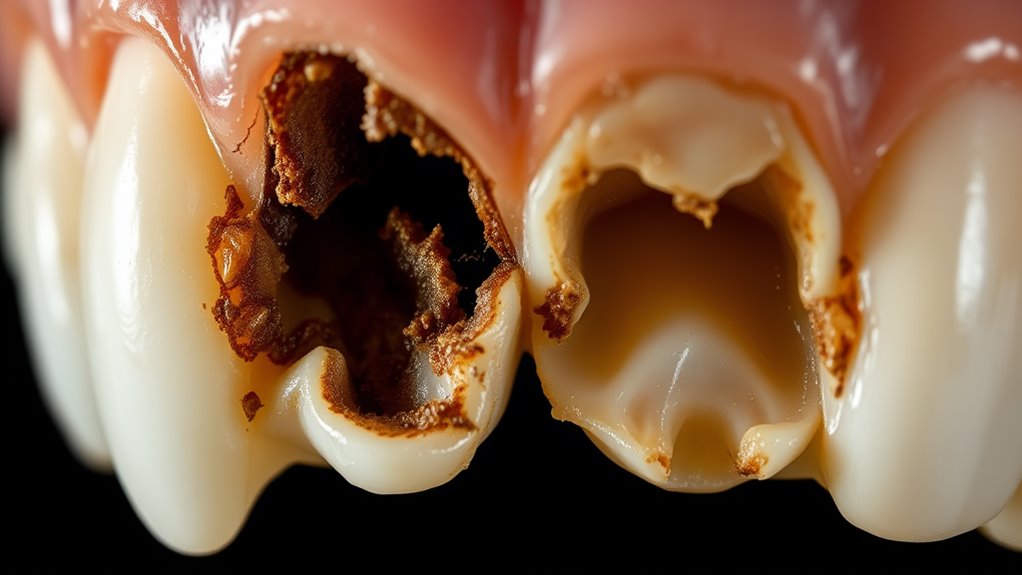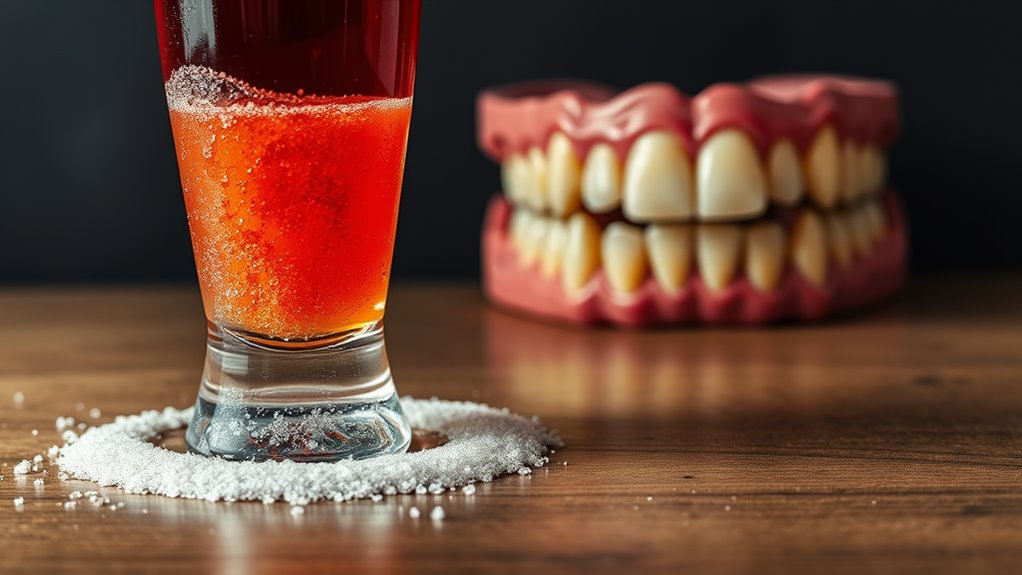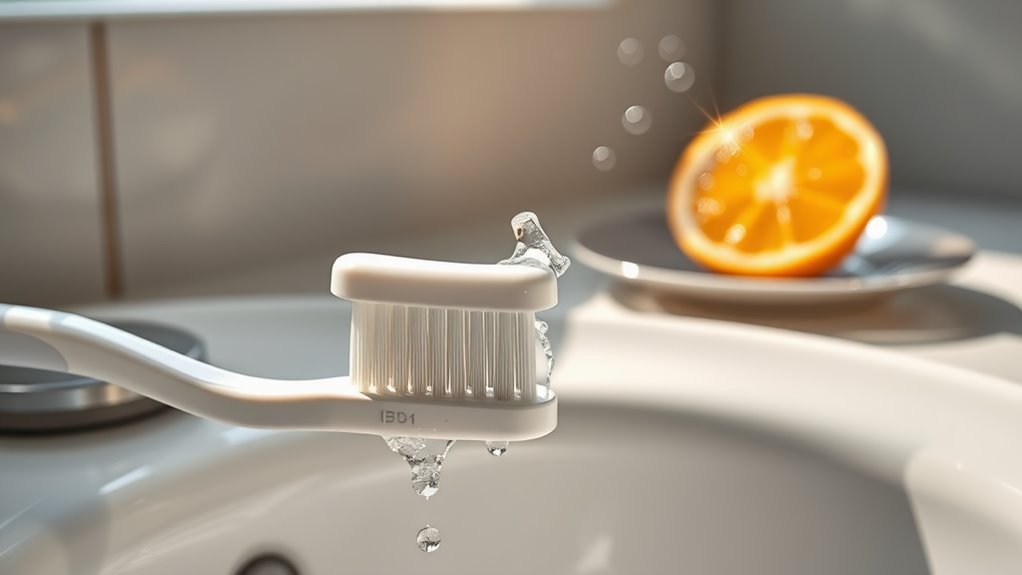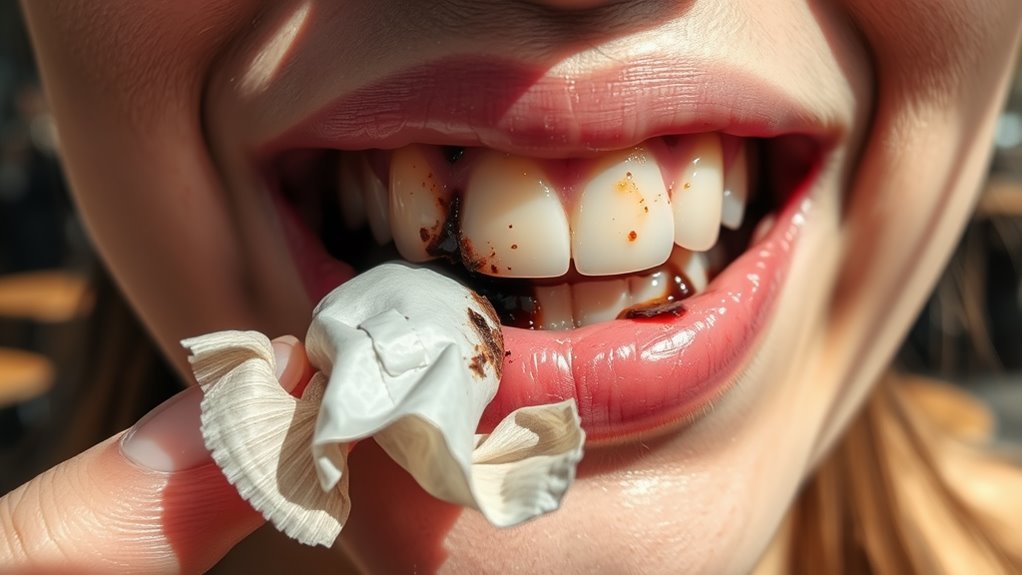The Vitamin Deficiency That’s Ruining Your Teeth!
Your teeth might be suffering from vitamin D deficiency without you realizing it. This essential nutrient helps your body absorb calcium, strengthens tooth enamel, and supports healthy gums. Warning signs include increased tooth sensitivity, bleeding gums, and recurring decay despite good oral hygiene. You can boost your levels through sunlight exposure, eating fatty fish, and fortified foods. Discover how simple daily habits can protect your smile for years to come.
Understanding Vitamin D’s Role in Dental Health
While many people associate vitamin D primarily with bone health, this essential nutrient plays a crucial role in maintaining your dental health. Your teeth rely on vitamin D to absorb calcium and phosphorus effectively, which helps strengthen your tooth enamel and support healthy jaw bone development.
When you’re deficient in vitamin D, your body can’t properly mineralize bone and tooth tissue. This deficiency can lead to weakened enamel, increased risk of tooth decay, and periodontal disease.
You’ll also be more susceptible to inflammation in your gums. Without adequate vitamin D, your immune system‘s ability to fight off harmful oral bacteria becomes compromised.
You can boost your vitamin D levels through sunlight exposure, consuming fatty fish, egg yolks, and fortified dairy products, or through supplements under medical supervision.
Warning Signs of Low Vitamin D in Your Mouth
As your body’s vitamin D levels drop, several telltale signs may appear in your mouth. You might notice increased tooth sensitivity, especially when consuming hot or cold foods. Your gums may become inflamed, tender, or bleed more easily during brushing.
Recurring tooth decay, despite good oral hygiene, can signal low vitamin D. Look out for a delayed healing process after dental procedures or mouth injuries. You may also experience a burning sensation in your mouth or frequent canker sores.
Weakening tooth enamel and unexplained tooth pain are other common indicators. If you’ve got periodontal disease that isn’t responding well to treatment, it could be linked to vitamin D deficiency.
Don’t ignore these symptoms – they’re your mouth’s way of telling you something’s wrong.
Natural Sources and Supplements for Vitamin D
When it comes to boosting your vitamin D levels naturally, sunlight remains your best source – just 10-15 minutes of direct sun exposure can help your body produce what it needs. If you can’t get enough sunlight, you’ll want to focus on vitamin D-rich foods and supplements.
| Natural Sources | Supplement Options |
|---|---|
| Fatty fish (salmon, mackerel) | Vitamin D3 capsules |
| Egg yolks | Liquid D3 drops |
| Fortified milk | Gummy vitamins |
| Mushrooms | Multivitamin tablets |
Before starting any supplement regimen, you’ll need to consult your healthcare provider to determine the right dosage. They can test your current vitamin D levels and recommend whether you need 1,000 IU, 2,000 IU, or more daily to reach optimal levels for dental health.
The Connection Between Sunlight and Strong Teeth
Since your body naturally produces vitamin D through sun exposure, getting enough sunlight directly impacts your dental health. When sunlight hits your skin, it triggers vitamin D synthesis, which helps your body absorb calcium – the crucial mineral that builds and maintains strong teeth. Without adequate vitamin D, you can’t properly utilize the calcium from your diet.
Here’s why sunlight matters for your teeth:
-
Just 10-15 minutes of sun exposure can generate enough vitamin D to support tooth mineralization.
-
UVB rays penetrate your skin and convert cholesterol into vitamin D3, which strengthens your tooth enamel.
-
Regular sun exposure helps prevent tooth decay by increasing calcium absorption and reducing inflammation in your gums.
Remember to balance sun exposure with skin protection to safely maintain optimal vitamin D levels.
Daily Habits to Boost Your Vitamin D Levels
While getting natural sunlight is ideal, you can boost your vitamin D levels through several daily habits.
Start your day with vitamin D-fortified foods like eggs, mushrooms, and fatty fish. If you’re eating cereal for breakfast, choose brands enriched with vitamin D and pair them with fortified milk. You’ll also want to consider a quality supplement, especially during winter months or if you live in a region with limited sunlight.
Make the most of outdoor time by scheduling activities between 10 AM and 3 PM when UV rays are strongest. Even a 15-minute walk during your lunch break can help.
Don’t forget to incorporate vitamin D-rich foods into your meals, such as tuna, salmon, or mackerel. If you’re vegetarian, look for fortified plant-based milk and orange juice options.




